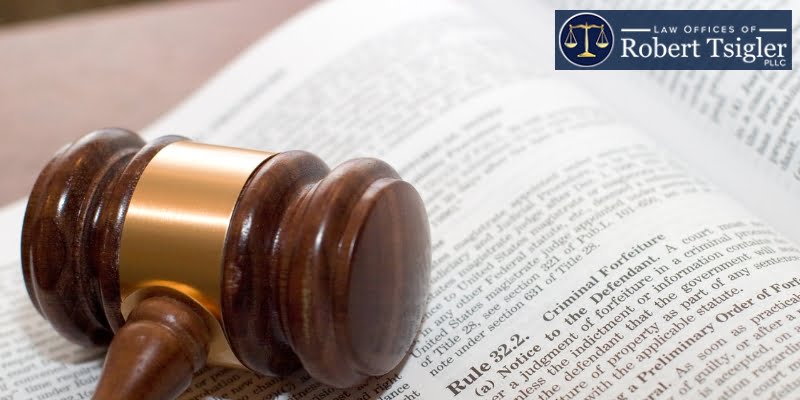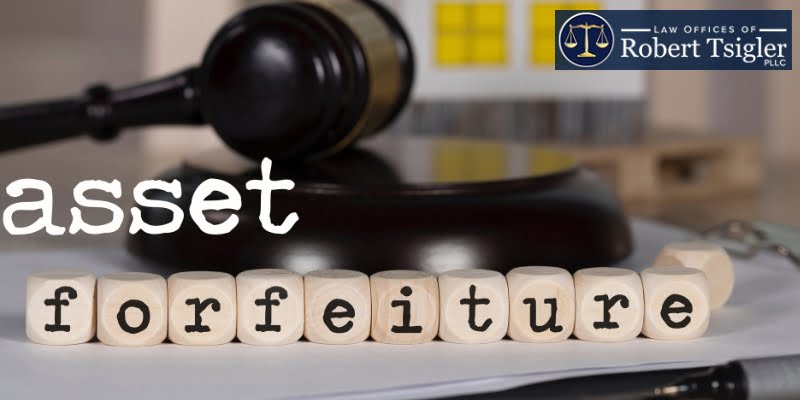NYC
Asset Forfeiture
& Seizure Attorney
New York Asset Forfeiture & Seizure Lawyer
The criminal codes of both the United States and the state of New York exist to prevent individuals from profiting off the exploitation and victimization of others. The law at both the state and federal levels allows for any assets to be seized if there is evidence to suggest the assets were obtained through illegal means. Unfortunately, these laws do not always work as intended. While they may aim to prevent lawbreakers from profiting off their illegal exploits and enjoying ill-gotten gains, they often create serious problems for regular citizens.
At the Law Offices of Robert Tsigler, PLLC, our criminal defense attorneys have helped thousands of clients navigate complex cases successfully. We understand how distressing it can be to have your property and assets unjustly seized, and our firm remains committed to protecting our clients’ Constitutional rights. Whether you have experienced criminal asset forfeiture or dubious civil asset forfeiture, our firm can help you protect your property and your rights.

Why Hire the Law Offices of Robert Tsigler, PLLC?
- 24/7 availability to quickly address your needs
- We return all calls and emails within hours
- The experience from thousands of cases handled
- A record of winning results

What Is Criminal Forfeiture?
The two kinds of asset forfeiture and seizure in the United States are very different. Criminal forfeiture is largely regarded as reasonable because it specifically targets an individual convicted of a crime. Additionally, criminal asset forfeiture occurs after an individual has been tried, convicted, and sentenced in a court of law. This process is typically regarded as a fair punishment that prevents an individual from retaining ownership of property gained through illegal means.
For example, imagine an individual who makes an illegal living selling cocaine purchases a vehicle with the money earned from their drug enterprise. If convicted for drug trafficking, the vehicle purchased would qualify for criminal asset forfeiture since it was obtained through illegal means. The prosecution will likely initiate an extensive investigation to determine exactly how the convicted individual spent the money from their drug operation and seize any and all assets acquired after the illegal activity began.
Criminal asset forfeiture is very common in cases involving drug trafficking, theft, and various types of fraud. If you have been convicted of any type of fraud for financial gain, it is very likely you will have your assets and property gained from the fraudulent activity as part of your sentencing. It will be very unlikely that you can get seized assets and property back in the future unless you successfully appeal your conviction to be overturned.
New York City
Practice Areas
$235,456 Recovered
$108,300 Recovered
$44,000 Recovered
While criminal asset forfeiture is largely uncontroversial, civil asset forfeiture is a far more contentious subject. Civil asset forfeiture is similar to criminal asset forfeiture in that it is a legal vehicle for stripping illegally obtained property from an individual, or seizing property used in the commission of a crime. Unlike criminal asset forfeiture, civil asset forfeiture occurs against the property itself and does not require the owner to undergo due process under the law.
The civil forfeiture laws of the United States and the state of New York include verbiage that allows law enforcement officials more flexibility in the seizing of assets. Basically, the standard for seizure in civil asset forfeiture is a “preponderance of the evidence” rather than the “beyond a reasonable doubt,” as is the case for criminal asset forfeiture. Seizure of assets also takes place first in civil asset forfeiture instead of at the conclusion of a criminal case as it does with criminal asset forfeiture.
Many argue that existing civil asset forfeiture laws allow the justice system to essentially circumvent Americans’ Constitutional protections against illegal search and seizure. One of the worst aspects of current civil asset forfeiture laws is the fact that they basically allow any government agency, such as the Drug Enforcement Agency (DEA), the Internal Revenue Service (IRS), or the Department of Homeland Security (DHS), to seize any property they suspect may be connected to a crime before they even file charges. This same right extends to state and federal law enforcement officers and agencies. These entities also have incentive to keep the property they seized, including money recovered through civil asset forfeiture.
The Asset Forfeiture & Seizure firm of Robert Tsigler, PLLC is Ready to Fight for You!
DON'T
DELAY
discuss your case right away.
Schedule A Consult
"*" indicates required fields
















